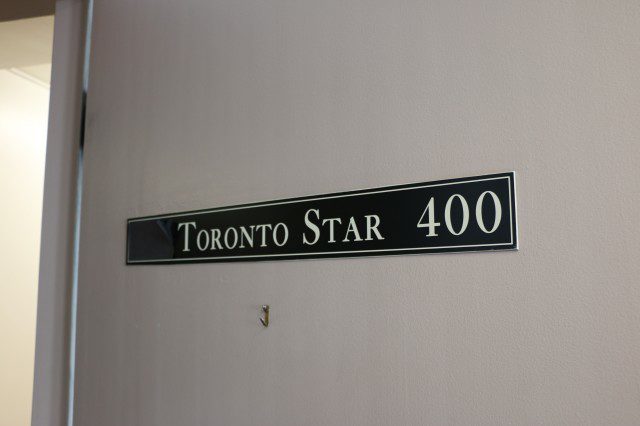
One of journalism’s larger ethical dilemmas is whether to grant the condition of anonymity to sources. Anonymity gives reporters the ability to publish information or quotes while withholding the name of the source, a precaution meant to keep a source non-identifiable, unreachable, or untraceable. [1] Most journalists adhere to the tradition of granting anonymity only in specific circumstances, like when there is no other way to discover the information supplied by a source who wishes to remain anonymous. Many journalists follow this principle, but in practice it is difficult to standardize because anonymity is granted on a case-by-case basis.
In the 2010 case of R. v. National Post, the Supreme Court of Canada confirmed that journalists may be allowed to protect their sources even when testifying in court or responding to a search warrant. In each specific case, a court will apply a more general rule known as the Wigmore test, which allows a confidence to be respected if the scenario meets four conditions:
- the source of information has been promised confidentiality,
- this confidentiality is crucial to the relationship between the source and (in this case) the journalist,
- the journalist-source relationship is vital to the public interest, and
- the benefit of protecting the confidence outweighs the need for disclosure.
The policy of the Barrie Advance is to grant anonymity if it is the only way to secure a crucial source. However, the editor-in-chief makes decisions on the fly based on the collective ethics of the newspaper.
“We’re all trained journalists, so in journalism school we’re all taught about going on and off-the-record,” says editor-in-chief Lori Martin. “We only do it when we need to. It’s basically our professional training kicking in.”[2]
After being a political journalist for over 20 years, Susan Delacourt has encountered sources wishing to be anonymous for a myriad of reasons. Working on the Hill has taught her to grant anonymity sparingly, due to the political climate. [3]
The Star has a publicly available standards guide which outlines its policy on anonymous sources: “The public interest is best served when news sources are identified by their full names. The Star should be aggressive in pressing sources to put information on the record and should seek independently to corroborate off-the-record information.”[4]
The guide describes how granting anonymity to a source is a conversation that should go up the chain of command — reporter to department editor to managing editor. The Star prefers to get sources on-the-record. However, there are unavoidable instances where anonymity must be granted.
Delacourt explains that in her experience, Canadian newspapers generally try to avoid anonymous sources. “My personal rule on anonymous sources, and it was at the Globe then too, you can say someone is anonymous but you have to say the reason they are remaining anonymous,” she says “So you’re giving readers at least a hint of why they’re asking for anonymity.” [5]
Delacourt, Martin and Watt all knew going into the situation when the PMO requested anonymity over their information on Trudeau that it is a journalist’s duty to closely scrutinize any requests to go off-the-record.
Next: Justin Trudeau’s speaking fees and the media
1. Wallace, Kathleen A. 1999. “Anonymity,” Ethics and Information Technology 1, 23-35.
2. Martin, Lori, and Laurie Watt. Personal interview. 8 December 2014. Unpublished.
3. Delacourt, Susan. Personal interview. 4 December 2014. Unpublished.
4. Cruickshank, John, D. “Toronto Star Newsroom Policy and Journalistic Standards Guide.” Toronto Star. 7 December 2011.
5. Delacourt, Susan. Personal interview. 4 December 2014. Unpublished.